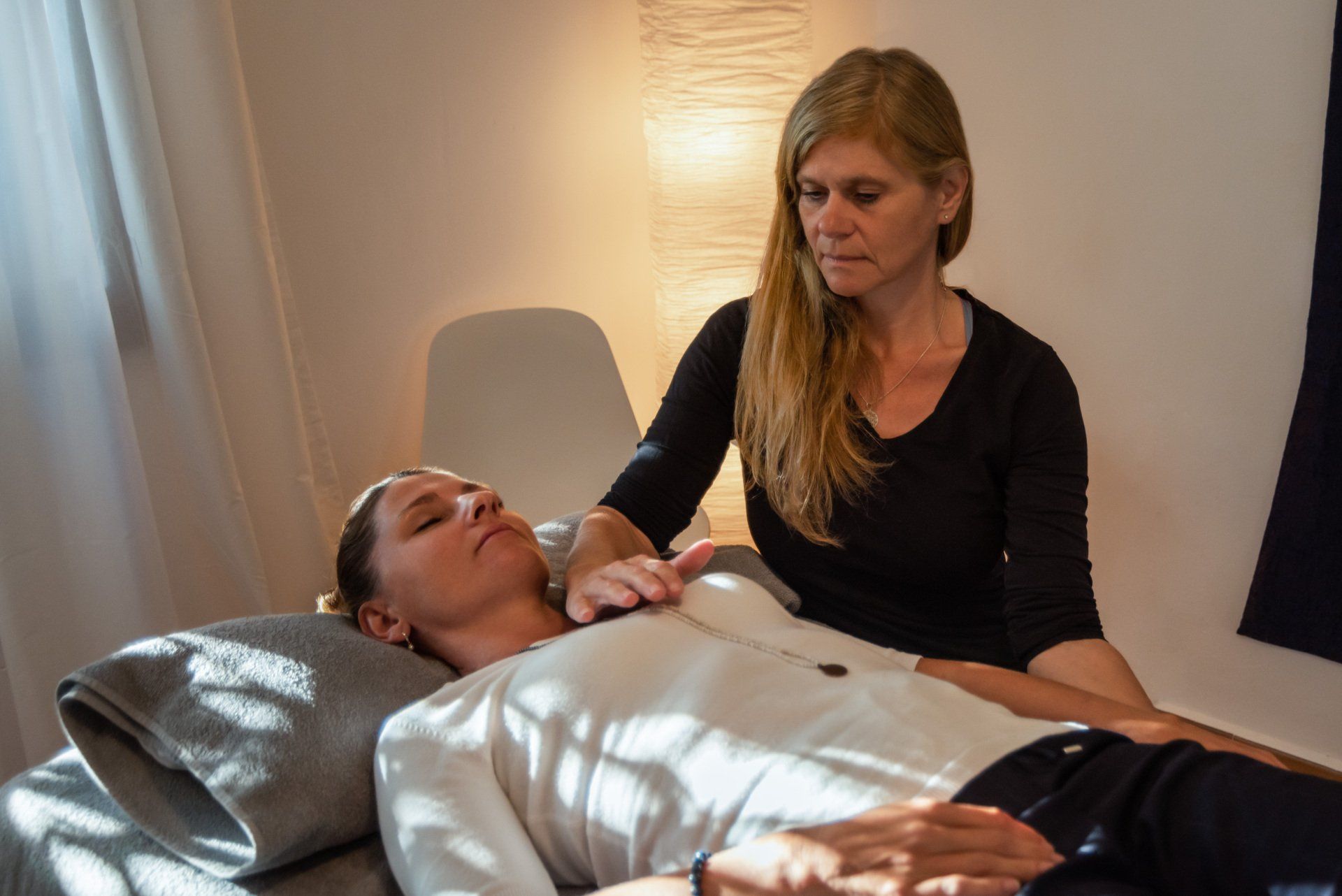Craniosacral Therapy

“The Craniosacral Treatment you gave me, which flooded all my cells with light, remains unforgettable, as does the energy boost during Yoga.”
“The Craniosacral Treatment you gave me, which flooded all my cells with light, remains unforgettable, as does the energy boost during Yoga.”
Josi
Button
“I am always amazed at the way Devi’s treatments take me into a deeper state of being.”
“I am always amazed at the way Devi’s treatments take me into a deeper state of being.”
Anna

“I never thought I would have such a deep experience with the treatment. “
“I never thought I would have such a deep experience with the treatment. “
Matteo
Button
-
THAI YOGA MASSAGE
ButtonWhat kind of Yoga do we offer?
Placeholder text This is a short text area to describe the project. Just write a few words about the purpose, inspiration or success of the project and let the images tell the rest of the story.
-
THAI MASSAGE
ButtonWhat kind of Yoga do we offer?
Placeholder text This is a short text area to describe the project. Just write a few words about the purpose, inspiration or success of the project and let the images tell the rest of the story.
ABOUT CRANIOSACRAL THERAPY
Craniosacral Work is a gentle but potent way of working with the body using a light touch. It supports your body’s innate ability to balance,restore and heal itself as well as helping to reduce stress and release underlying energy. The whole system, integrating physical, mental, emotional and spiritual aspects, are included. It is suitable for everyone, from newborn babies to the elderly.
The body has self-healing capabilities and is constantly striving for a balanced state of good health. Craniosacral Work facilitates this natural propensity for balance and a feeling of well-being in you. Craniosacral Work also recognizes the interconnection between mind, body and soul. As a Craniosacral therapist, I work with the presence of subtle rhythmic motions that are expressed within the body (particularly the head, spine and pelvis). These rhythmic motions are called THE BREATH OF LIFE. The free and balanced expression of these subtle motions is related to our state of health and vitality.
This approach to Cranio Sacral Work unfolds as a form of quiet dialogue. Through this subtle dialogue with the clients body and the organising intelligence of the central nervous system and the connective tissue matrix, hidden or forgotten patterns formed in response to insult and injury can be gently revisited, questioned and reorganised. The process is deeply satisfying and nourishing. Its aim is a more open, calm and graceful way of being.
Instead of attacking illness, a Craniosacral therapist works with the life force to promote true healing. Like most complementary therapists, Cranio Sacral therapists do not attempt to diagnose or cure illness. That’s not how it works. It is a subtle, but well-grounded form of healing that can have excellent results.
Technique
In a typical session the client will lie (or sometimes sit) clothed on a treatment couch. The therapist makes contact by gently placing her hands on the client’s body and uses a light touch to tune into the subtle motions taking place. The therapist can evaluate if there are any imbalances within the body and use a range of non-invasive therapeutic skills to relax and thereby promote self-healing within the client.
All animals have the incredible ability to heal themselves, and on the whole are self-healing, constantly renewing worn out cells, and maintaining and repairing any parts that are not functioning properly. Illness is often more a case of the repair mechanisms not working as well as they could, rather than an illness that needs to be ‘fought’. So a Craniosacral therapist helps to bring about a state of balance enabling improved function of the self healing mechanisms.
This approach can be seen in conventional medicine too: When bones break, they are simply realigned to the right position, they can then
get on and mend themselves; wounds are treated by sterilising and closing them, so that we can sit back and watch as the body miraculously repairs itself. Colds and influenza just get better after the body’s defences swing into action. So it is easy to see why an increase in vitality can improve healing.
Benefits
The benefits of Craniosacral therapy are an overall improved state of health and vitality. This is achieved by bringing about improved balance and harmony, so that instead of attacking illness, a Craniosacral therapist works with the life force to promote true healing. In this way the body is brought into a better state of balance so that it can heal itself. We don’t treat illnesses, we work with people!
By bringing the body into a more balanced state that favours self-healing, many people with chronic illnesses find craniosacral therapy helps either with management of illness, or leads to a significant improvement in symptoms.
Craniosacral therapy has proven especially beneficial
for chronic neurological conditions such as problems with coordination,
severe hyperactivity and psychological disorders.
PHYSICAL RELIEF
Muscle tension
Neck pain, migraines/headaches
Strengthening of immune system
Chronic back pain
Chronic fatigue
Pelvic pain
Sinus infection
Motor-coordination impairments
Central nervous system disorders
Concussions
Fibromyalgia
Scoliosis
Traumatic brain and spinal cord injuries
Whiplash
Healing of long term injuries
Temporomandibular joint syndrome (TMJ)
Joint pain and disorders
Neurovascular disorders
Motor co-ordination difficulties
Hormonal imbalance
EMOTIONAL relief
Stress relief
Calming of the mind
Deep relaxation
Emotional release
Balance of energy flow
Psychological issues such as anxiety and depression
Post-Traumatic stress disorder
Learning disabilities
Infantile disorders
Mood disorders
I am happy to come
to your location as required
Visit also my other website together with my husband we run the Rudra Retreat Center located on Mallorca


